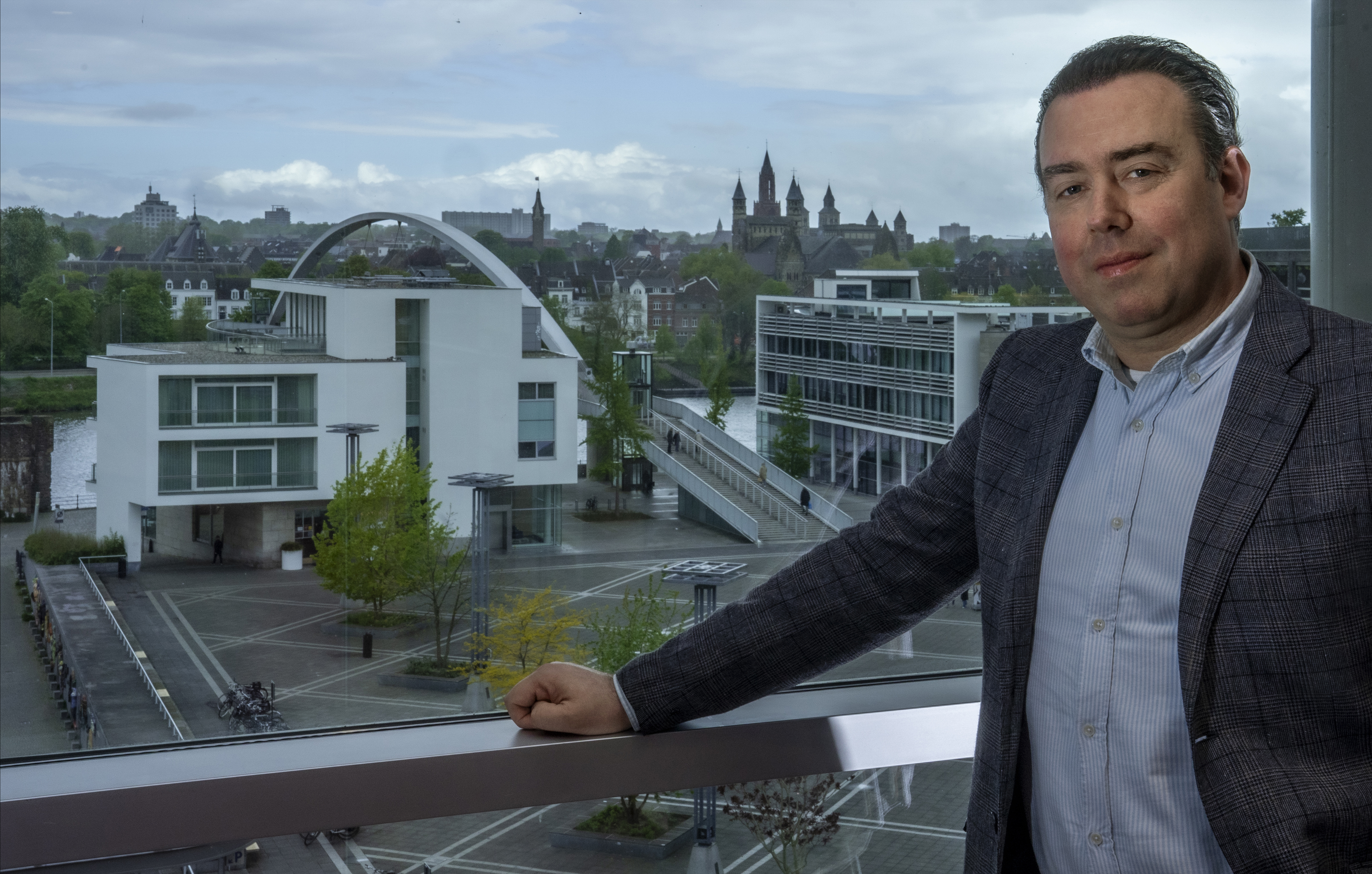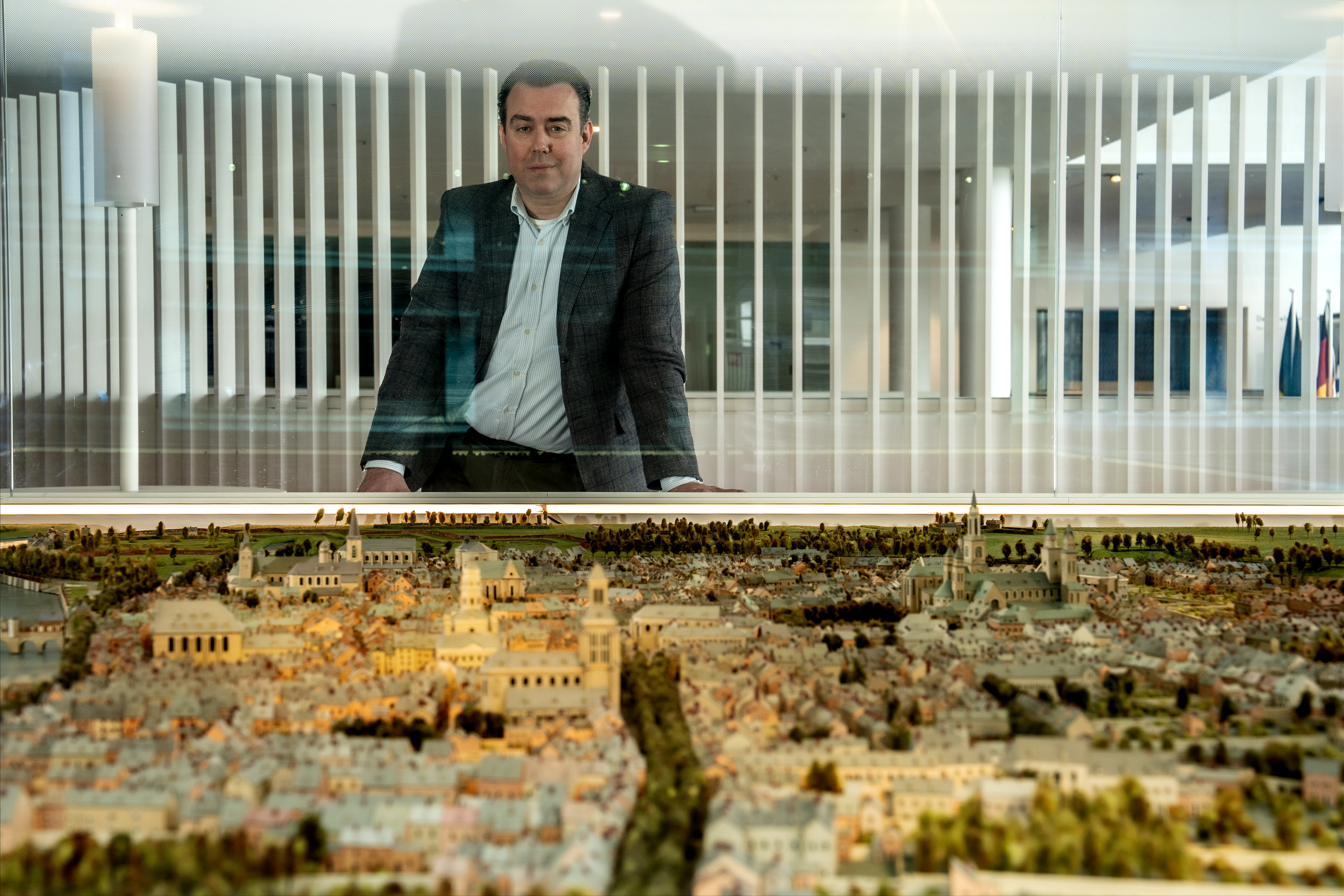Maastricht native Stefan Vrancken: “If it weren’t for the university, Maastricht would look very different”
What does it mean to live and work in a city with an international university? When do you notice the university, and how does it benefit you? We asked Maastricht native Stefan Vrancken (50), who works as an associate notary. In his spare time, Vrancken is also an amateur historian and genealogist who enjoys combing the archives to learn about the history of his city.
“It’s worth asking ourselves now and then what the city would look like if it weren’t for the university,” Vrancken says. “It would be a completely different kind of city; in any event, one that had missed all the developments Maastricht has undergone in recent years. It wouldn’t have grown into a city with the international allure it has today. And its many historical buildings and monuments wouldn’t be nearly as well-looked after.”
Text continues below the photo.

Keeping past, present and future alive
“In my opinion,” he continues, “the university makes an essential contribution to the face of Maastricht. It’s located in many historic buildings around the city, and takes responsibility for their conservation and maintenance. That’s not nothing. Who else would do that? It’s not something the municipality can afford. And it means a wealth of historical and cultural heritage is preserved; you can find something beautiful on almost every street corner. For someone like me, with a passion for history, this is something to be very happy about. It keeps history alive.”
“I can indulge myself here. In fact, I think the stories behind all that heritage should be told and shared much more. Just think of all that’s already happened in the very place where you as a student now attend lectures or sit down to study. And it goes much further than that, too. Without a university, we wouldn’t have a teaching hospital here, the cafes and restaurants would be quieter, and the city wouldn’t be known as a great place to hold a conference.”
Text continues below the photo.
Having the university means a wealth of historical and cultural heritage is preserved; you can find something beautiful on almost every street corner. For someone like me, with a passion for history, this is something to be very happy about.
Stefan Vrancken
Charm
“Some people find the students an inconvenience; I get that. In my street in Wyck, I trip over bikes now and then. And I have to get used to the fact that the official language is no longer always Dutch—or Mestreechs—in shops and restaurants. It’s important to enter into dialogue about that and continue to seek a good balance. But as far as I’m concerned, it also has its charm. It makes the city lively and vibrant. And hearing all those different languages makes me very happy. Maastricht’s central location means it has a rich history with many foreign influences. So they fit in here; they belong here. The city has a cosmopolitan character while also feeling safe and orderly. If you ask me, it’s a privilege to live here.”
Text: Sanne Tummers
Photos: Harry Heuts
Without a university, we wouldn’t have a teaching hospital here, the cafes and restaurants would be quieter, and the city wouldn’t be known as a great place to hold a conference.
Stefan VranckenAlso read
-
Flour, family, and forward thinking: the evolution of Hinkel Bäckerei
In the heart of Düsseldorf, the comforting aroma of freshly baked bread has drifted through the streets for more than 130 years. Since its founding in 1891, Hinkel Bäckerei has evolved from a small neighborhood bakery into a cherished local institution.
-
The University Fund Limburg's new Annual Fund Campaign is live!
Every year during the holiday season, the UM community comes together to uphold a special tradition: supporting projects that contribute to a healthier, fairer and more sustainable society. Will you join us?
-
A new wave of talent emerges from the School of Business and Economics
On Sunday, November 30, 2025, the Maastricht University School of Business and Economics (SBE) proudly celebrated the achievements of over 1,461 graduates from both bachelor’s and master’s programs. The festive ceremony took place at the MECC Maastricht and marked a significant milestone for the SBE